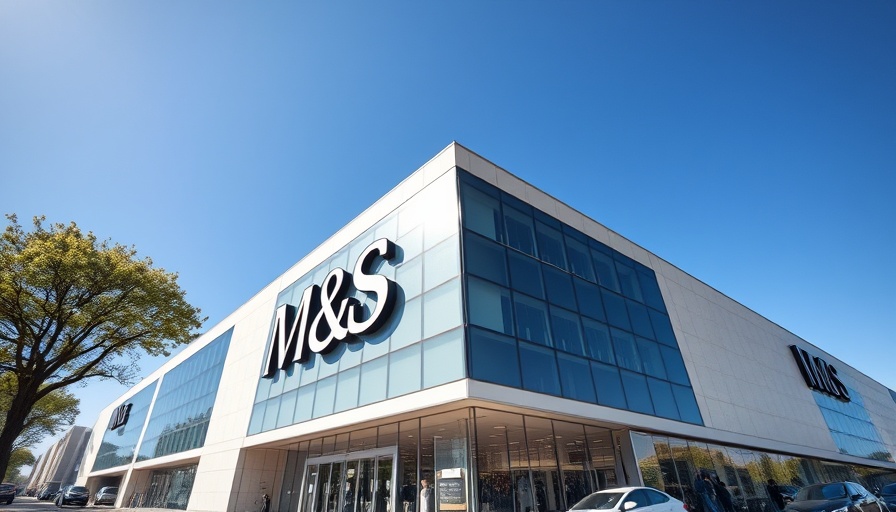
The Impact of the Cyber Incident on Marks & Spencer
Marks & Spencer (M&S) is navigating a serious cyber incident that has led the retailer to suspend all online sales, affecting both its website and mobile app functionalities. In a proactive approach, the company announced via social media that it is taking precautionary measures while investigations are underway. Customers are encouraged to visit physical stores, which remain open for sales, but online shopping will not resume until further notice.
Customer Caution: Vigilance is Key
In light of the cyber breach, M&S has alerted customers to remain vigilant against potential phishing scams that may arise from this situation. As evidenced by industry experts, customers may receive unsolicited communications posing as M&S, attempting to extract personal information. CEO William Wright from Closed Door Security emphasizes the necessity for all customers to monitor their online activities and bank accounts closely.
Financial Implications for M&S and Its Customers
The implications of this cyber incident may extend beyond discomfort for M&S shoppers. William Wright notes that nearly 25% of the retailer's sales occur online. A prolonged suspension of online services could have serious financial ramifications for the company, particularly as it reassesses the incident's impact. Businesses must be aware that cyber incidents can cause not only immediate disruptions but long-term financial losses as well.
Understanding Cyber Breaches: The Bigger Picture
This incident at M&S is part of a growing trend in the retail industry where cyber breaches are becoming prevalent. Establishments must invest in cybersecurity solutions and protocols not only to protect their businesses but also to safeguard customer interests. A recent report from the National Cyber Security Centre suggests that effective cybersecurity measures are foundational to maintaining consumer trust.
How Brands Can Prepare for Cyber Incidents
As the M&S incident exemplifies, businesses of all sizes should develop contingency plans that include responsive strategies for data breaches. Several key elements can be integrated into preventive measures:
- Regular Security Audits: Frequent assessments can help uncover vulnerabilities before they are exploited.
- Investment in Technology: Implementing advanced security technologies, such as AI-driven analytics, can enhance threat detection.
- Staff Training: Regularly educating employees about security protocols ensures that they remain vigilant in safeguarding company data.
Lessons for Marketing Teams in the Digital Age
Digital marketing is inherently tied to technology, and incidents like this serve as reminders for marketing teams to incorporate strong cybersecurity language into their strategies. Transparency is crucial; it’s important to communicate potential risks to consumers openly and provide reassurance that the organization is working diligently to protect their data.
Final Thoughts: The Cybersecurity Landscape
Persistent vigilance and proactive measures are the best defenses against emerging cyber threats. As M&S works to mitigate the repercussions of its current breach, businesses should take this as an opportunity to reassess their own cybersecurity practices. Building robust defenses isn’t just about compliance; it’s about ensuring consumer trust and allaying fears in an increasingly digital marketplace.
In light of M&S's situation, businesses are reminded that safeguarding their operations against cyber threats is not just a best practice but a necessity in today's market landscape. Attention to cybersecurity can not only protect customer data but can also sustain the long-term viability of a business.
 Add Row
Add Row  Add
Add 




 Add Row
Add Row  Add
Add 

Write A Comment